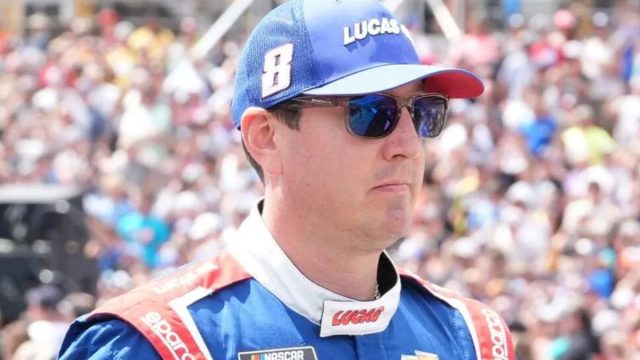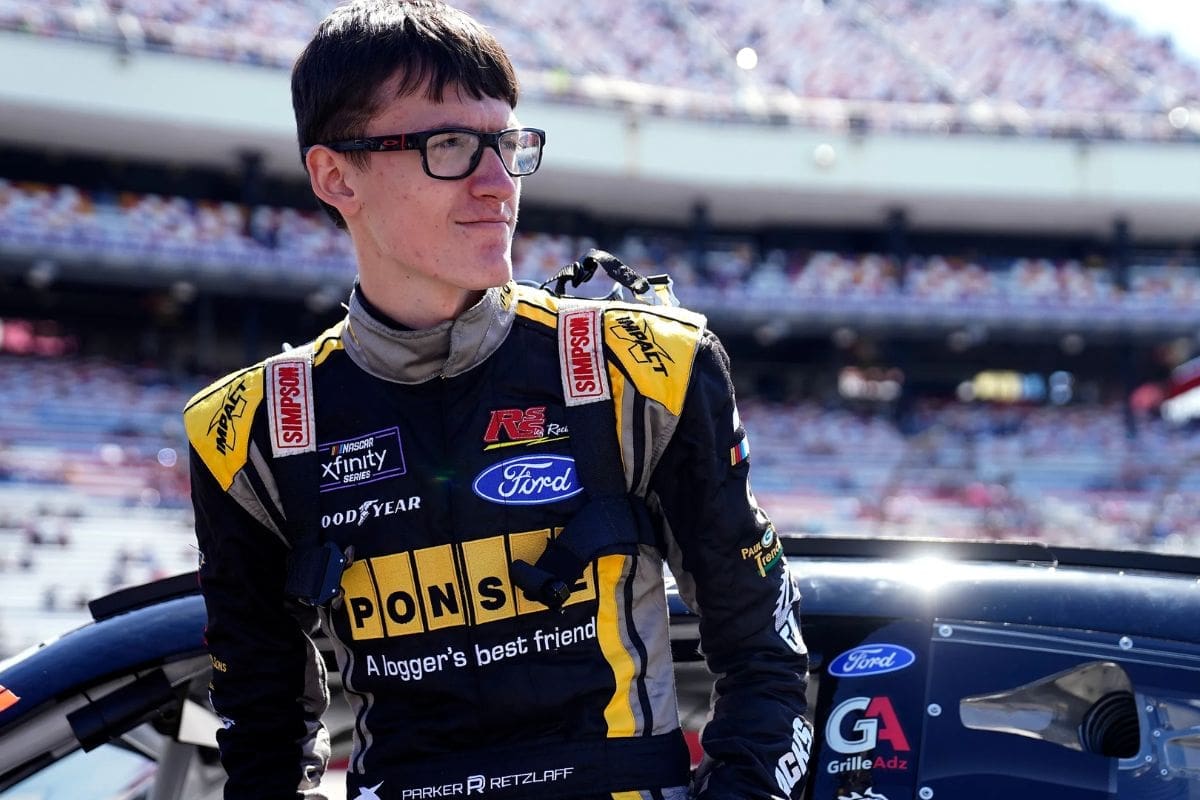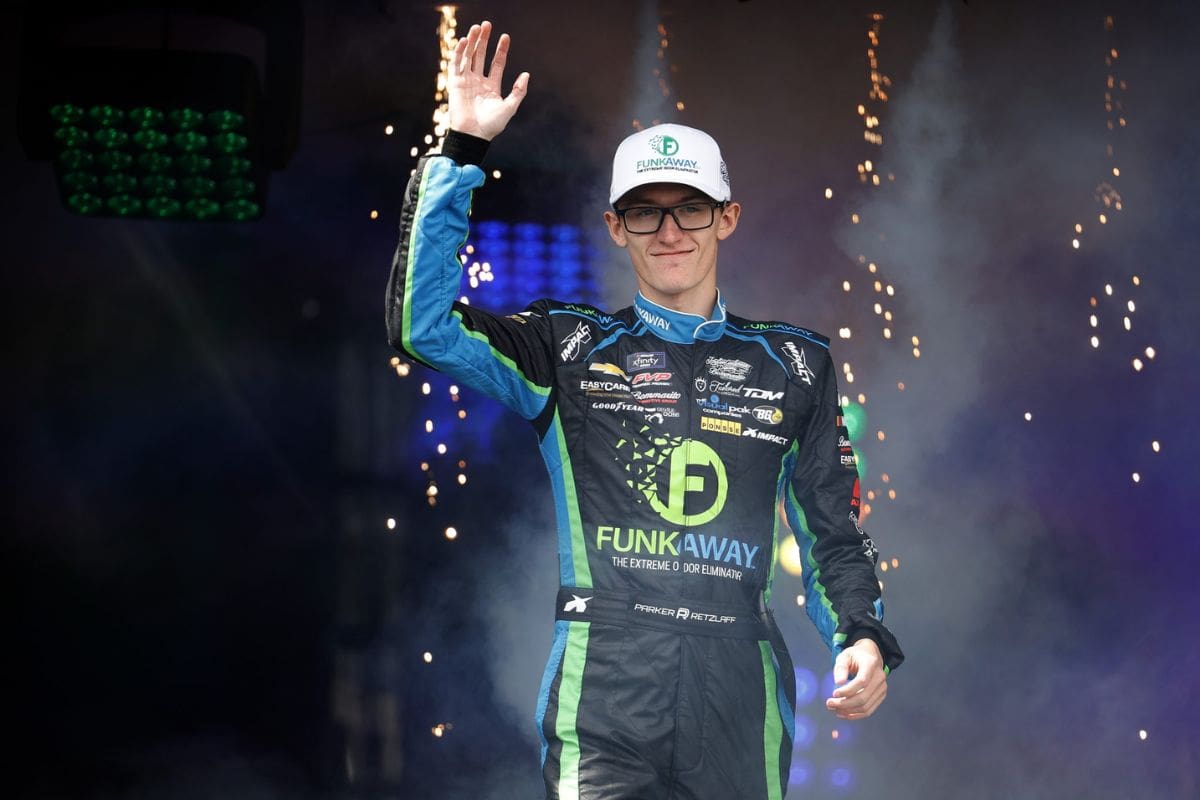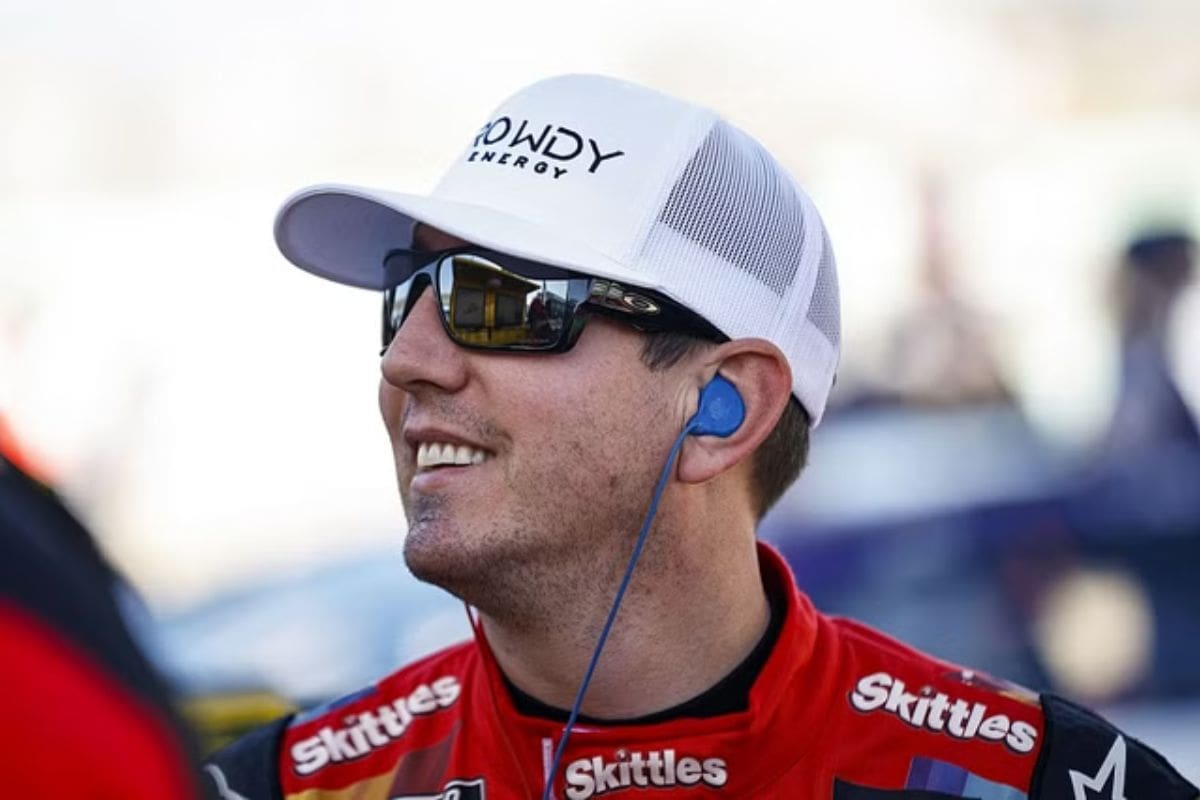Kyle Busch’s Daytona Heartbreak: Kyle Busch‘s recent experience at Daytona serves as a powerful illustration of the evolving dynamics within NASCAR, particularly highlighted by rookie Parker Retzlaff‘s controversial decision to align with ford/”>Ford’s Harrison Burton. This unexpected move defied traditional manufacturer loyalties and left Busch grappling with isolation at a critical moment in the race. Retzlaff’s rationale, rooted in long-term aspirations, prompts a deeper examination of the implications for teamwork and strategy in a sport where every choice reverberates beyond a single event.
Key Highlights
- Kyle Busch’s isolation at Daytona diminished his chances, highlighting the critical role of teammate support in pack racing dynamics.
- Rookie Parker Retzlaff’s decision to assist Ford’s Harrison Burton challenged traditional manufacturer allegiances, raising questions about future teamwork in NASCAR.
- Retzlaff’s bold move during the race showed the competitive nature of NASCAR, resulting in mixed reactions from fans and analysts.
- Emotional consequences for Busch included frustration and heartbreak, emphasizing the impact of high-stakes racing on drivers’ morale and performance.
- Busch’s upcoming race at Darlington will test his mental resilience and strategic adjustments following the disappointment at Daytona.
Manufacturer Allegiances in NASCAR and Retzlaff’s Surprising Move
Manufacturer allegiances greatly influence the dynamics of racing, particularly in high-stakes events like the Daytona race, where teamwork can be the difference between victory and loss. In the context of the NASCAR Cup Series, the interplay between Chevrolet, Toyota, and Ford drivers often sets the stage for tactical alliances aimed at enhancing individual and collective performance.
However, the recent actions of rookie Parker Retzlaff, who drives the No. 62 Chevy, have sparked considerable discourse regarding the implications of straying from these manufacturer loyalties. Retzlaff’s decision to operate independently during the pivotal final lap of the Daytona race caught spectators off guard and left veteran driver Kyle Busch in a risky position.
Instead of adhering to the expected collaborative approach associated with manufacturer support, Retzlaff opted to assist Harrison Burton and the Ford camp, seemingly returning a favor rather than pursuing an upset. This departure from the norm shows a distinct understanding of the racing landscape, where personal relationships may supersede formal allegiances.
Kyle Busch Left Without Support at Daytona
How does the absence of tactical support impact a driver’s chances in the high-stakes environment of Daytona? In the world of pack racing, where every fraction of a moment counts, a driver’s success is often dependent upon the assistance of teammates. Kyle Busch’s experience at Daytona serves as a reminder of this reality. Despite leading early on, Busch found himself isolated during the decisive moments of the race, a situation that ultimately cost him dearly.
As Busch drove the final lap, the absence of push from behind became painfully evident. While he initially held the inside lane, the dynamics shifted rapidly when Parker Retzlaff and the outside lane surged forward. Busch’s isolation hampered his chances and highlighted the risky nature of superspeedway racing, where even a moment’s lack of support can lead to devastating outcomes.
Parker Retzlaff’s Controversial Decision at Daytona
Parker Retzlaff’s decision at Daytona has sparked considerable debate, reflecting the complex interplay between personal ambition and team loyalty in NASCAR. His candid acknowledgment of the consequences of his choice reveals a notable internal conflict. While he expressed regret for not supporting his fellow Chevy driver, Kyle Busch, Retzlaff simultaneously emphasized his commitment to those who have backed him throughout his nascent career.
“If I could go back and change it. I would’ve, you know, helped Chevy and all of them put a Chevy in the playoffs. But I also just don’t want to give up for everybody who’s supported me and just wanted to give them a good result. I hate being the person to cause all this, I guess drama and mess on Twitter, but once again, I did whatever I felt like was best for the people who’ve supported me.” – (Retzlaff)
The relationships within racing teams often dictate decisions that can impact the broader narrative of the sport. Retzlaff recognized the burden of his choices, feeling responsible for the ensuing drama, especially in the age of instant social media examination.
Despite the immediate fallout, he prioritized his path, indicating a desire to secure favorable outcomes for himself and his supporters. His communication with Chevrolet remained positive, suggesting that his decision did not irreparably harm his standing within the manufacturer’s ecosystem.
Kyle Busch’s Playoff Chances
Kyle Busch’s playoff chances have become a focal point of discussion as the season approaches its critical moment. While the current format of NASCAR allows even underperforming teams a pathway to competition, the No. 8 team and Richard Childress Racing (RCR) have faced considerable hurdles since the onset of 2024.
However, a resurgence post-Olympic break has instilled a renewed sense of optimism. The question remains: can this momentum carry them through to a playoff spot?
With a formidable 100-point deficit and time running out, Busch’s path to the playoffs is unequivocal—a victory is non-negotiable. The recent uptick in performance cannot be overlooked; two top-five finishes in his last three races mark a notable turnaround from earlier struggles.
This improvement is crucial, as consistency in performance will be vital in the pursuit of a win. Moreover, Busch’s history at the Southern 500, where he has previously celebrated victory, offers a psychological edge.
The Stakes for Kyle Busch at Darlington
As the engines roar to life at Darlington Raceway, the stakes for Kyle Busch intensify dramatically. This race is not just another entry on the calendar; it is a pivotal moment in his quest to maintain a remarkable 20-year winning streak.
With the pressure mounting, Busch finds himself traversing a landscape filled with critical narratives that could shape the course of his season. A win would extend his streak and solidify his legacy in NASCAR history as one of the sport’s most consistent competitors.
With the playoffs on the horizon, every point matters. A strong performance could solidify his position and improve his championship aspirations. The intensity of competition at Darlington has escalated, with other seasoned drivers also competing for victory. Busch must outsmart and outperform these rivals.
News in Brief: Kyle Busch’s Daytona Heartbreak
The dynamics of NASCAR racing have been deeply impacted by the actions of rookie Parker Retzlaff, whose decision to aid Harrison Burton reflects a departure from traditional manufacturer allegiances. This shift emphasizes the evolving nature of teamwork within the sport and highlights the emotional and tactical complexities faced by veterans like Kyle Busch.
As the season progresses, the implications of such alliances could greatly influence playoff outcomes, reshaping competitive landscapes and individual aspirations.
ALSO READ: Kyle Busch Backs Rockingham Raceway’s Return: NASCAR’s Historic Track Is Back in Action



